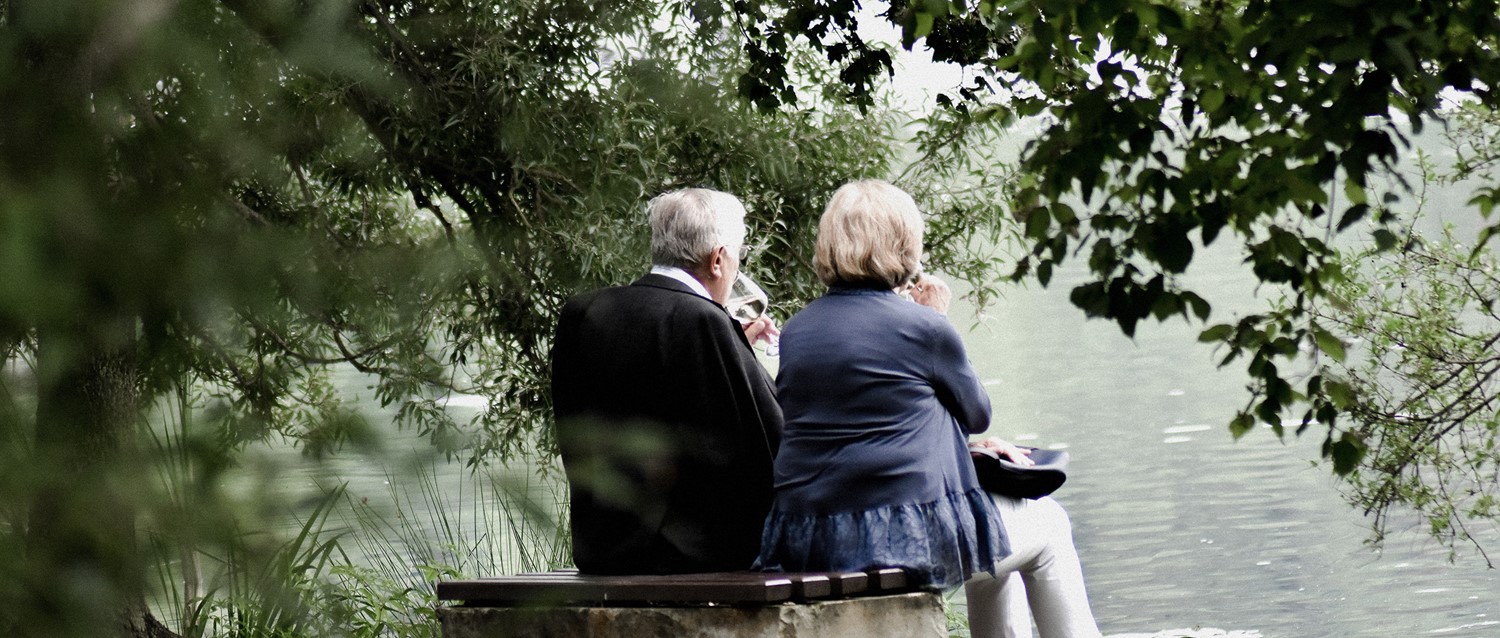
Why are STIs on the rise in older people?
Peer reviewed by Dr Sarah Jarvis MBE, FRCGPAuthored by Milly EvansOriginally published 18 Jul 2019
Meets Patient’s editorial guidelines
- DownloadDownload
- Share
- Language
- Discussion
- Audio Version
Whilst STIs are on the rise in virtually every age group in the UK, there is a notable upwards trend in older people. Changing attitudes to sex and relationships and more casual sex among older age groups is contributing to a sexual health crisis.
In this article:
Video picks for Sexually transmitted infections
A recent report from Public Health England made the case for better sexual health services and education clear. Sexually transmitted infections (STIs) in England increased 5% between 2017 and 2018. Virtually every age group saw a rise in most infections but gonorrhoea and chlamydia saw the biggest proportional increase in people over 65. Cases of gonorrhoea increased 42% from 236 to 336 and chlamydia by 24% from 416 to 517.
Of course, this is just a small fraction of the whole population of older people in the country. Nevertheless, these stats point to a worrying trend, which could snowball if there is no intervention. So why are we seeing more older people with STIs?
Continue reading below
More divorce, more new partners
Although divorce rates are going down across the population as a whole, divorce rates in later life are going up and more older people are entering new relationships following a divorce or bereavement. One study showed that more than 80% of those aged 50-90 years are sexually active.
Samantha Evans, former nurse and co-founder of sexual health and pleasure site Jo Divine, speaks with many older people about their sex lives and relationships. "Often they tell us they are in a new relationship, having been widowed or divorced or meeting their partner later in life so we advise them about using protection. Some are surprised about this and say 'I didn't think I needed to use a condom!'"
It is getting easier for older people to date and find casual sexual partners through various dating apps. For some older people, it may be their first time having multiple short-term partners or being able to experiment with sex and sexuality. As much as this is exciting and sex has many benefits for your health and well-being, it is still important that older people take into account the effect of unprotected sex on sexual health. Some research has shown that older people are more likely to start having sex with a new partner earlier in a relationship than their younger counterparts and thus are more likely to have casual sexual encounters.
Safe from pregnancy
Back to contentsFor many older people, ageing out of their fertile years can lead to riskier sexual behaviour.
"Some older people have little knowledge about preventing STIs and frequently view the use of condoms as just preventing pregnancy, something which no longer affects them. They do not get tested when they are exposed, recognise the symptoms of an STI or know where to get tested, leading to late diagnosis of STIs and HIV," says Evans.
But pregnancy is not the only risk associated with unprotected sex - as long as you don't know your own or your partner's STI status, or know that one of you has an STI and have unprotected sex, you are putting both yourself and your partner at risk. It is crucial to use a barrier method like a condom or a dental dam for oral sex and make sure to cover and clean shared sex toys before they are used on someone else.
Continue reading below
Lack of education
Back to contentsSex education is only just beginning to improve in the UK, meaning that many older people missed out on sex education as teenagers or were taught outdated ideas around sex and relationships. Condoms, when they were first sexually active, were different to the ones we have today; modern versions come in various sizes, textures, thicknesses and flavours. It is highly unlikely that people over 65 would have been taught about LGBTQ+ relationships and sex in a school environment and thus may be unaware, as many young people still are, of the STI risk involved in non-penis-in-vagina sex.
Much of sex education and sexual health information from the 1960s focused on pregnancy prevention, with the advent of the oral contraceptive pill bringing about a 'sexual revolution'. Moving into the 1980s, sexual health campaigns focused on HIV and AIDS, particularly targeted at gay and bisexual men, meaning that much of the general public viewed themselves as exempt from this risk. We continue to see late diagnosis of HIV among older people as they view their risk of contracting it as minimal.
Even in 2019, most sex and sexual health resources and government campaigns are targeted at young people, contributing to stigma around older people's sexual health. Clive Blowes, HIV and Ageing Lead at HIV and sexual health charity Terrence Higgins Trust, says: "There is a gap in the information available for over-50s about how to access STI testing and improve their sexual health."
A newly approved, EU-funded project, SHIFT, is aiming to engage with those over 45 and create a 'tailored sexual health and well-being model', to tackle this gap. According to Sophie McGannan of the Health and Europe Centre: "The tailored strategy will reach 40,000 people experiencing socio-economic vulnerability and will create a network of links with organisations who work directly with these groups to ensure increased awareness about the specific approaches required when discussing sexual health."
Getting tested
Back to contentsSome older people feel that using sexual health clinics and services is embarrassing. Many services are targeted at increasing the number of young people getting tested for STIs and having safe sex, which can mean that a 70-year-old may be sitting in a waiting room with a group of teenagers.
They may feel judged for going to get tested, as outdated stereotypes suggest that older people shouldn't or can't have sex, suggests Blowes. "The discussion of sexual health with older communities is often non-existent due to the stigma that surrounds older people and sexual activity, or the assumption that there is low or no sexual activity among this group. This leads to those aged 50 and over not receiving sexual health advice they need," he explains.
Another problem is that older people are often not asked about their sex life, says Evans. "Some medical professionals often assume that their older patients are not sexually active, are already informed or do not feel comfortable discussing sexual health issues. That means they neglect to discuss sexual health practices with them too." But health conditions can have an impact on sexual function, and symptoms of STIs can be mistaken for other conditions.
If you're seeing a new partner or multiple partners and haven't been tested, it's possible that your mystery health symptoms could actually be signs of an STI. "With the population growing older and living longer, society and healthcare professionals need to recognise that older people remain sexually active and need to be educated and informed about sexually transmitted infections, how to recognise them and how to prevent them," explains Evans.
Blowes encourages sexual health organisations and service providers to improve access and awareness of the sexual health issues faced by older people. "Everyone deserves the right to access sexual health advice no matter their age. Which is why we need to ensure that sexual health campaigns and services are inclusive of all ages so that older people can not only see themselves represented, but be better informed on how to maintain good sexual health," he reflects.
Patient picks for Sexually transmitted infections

Sexual health
A chlamydia vaccine has passed initial safety tests
An early stage clinical trial of a chlamydia vaccine has found it to be safe in humans.
by Milly Evans

Sexual health
Oral sex: what you need to know to stay healthy
Oral sex is a regular and pleasurable part of many people's sex lives, yet misconceptions about the associated health risks are common. We talk to sexual health experts about how to stay healthy.
by Sally Turner
Continue reading below
Article history
The information on this page is peer reviewed by qualified clinicians.
18 Jul 2019 | Originally published
Authored by:
Milly EvansPeer reviewed by
Dr Sarah Jarvis MBE, FRCGP

Ask, share, connect.
Browse discussions, ask questions, and share experiences across hundreds of health topics.

Feeling unwell?
Assess your symptoms online for free
Sign up to the Patient newsletter
Your weekly dose of clear, trustworthy health advice - written to help you feel informed, confident and in control.
By subscribing you accept our Privacy Policy. You can unsubscribe at any time. We never sell your data.